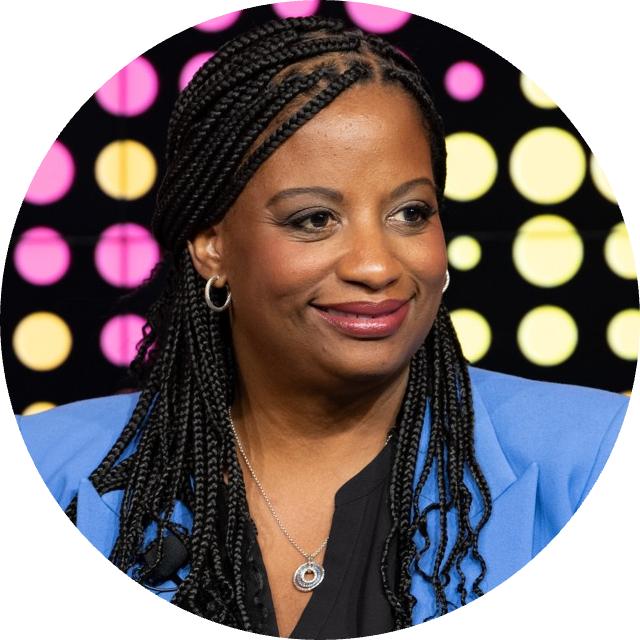How Verizon and PwC are using generative AI to improve talent management

Internal talent marketplaces are getting smarter, thanks to generative AI.
Companies like telco group Verizon and management consultancy PwC are using new technologies that signpost what internal job opportunities are available and relevant to their employees, and match which workers would best suit certain roles, based on their skill sets and career paths.
While some companies have been cultivating their internal talent marketplaces for years, others are just getting started, as businesses prioritize upskilling and retaining internal talent rather than overhiring. And the integration of generative AI into these marketplaces, has meant that leaders can view which employees match the skill sets for internal job openings much faster, taking into account more information related to the specific career goals and paths of individuals.
A total 30% of large enterprises will have deployed an internal talent marketplace by 2025, according to Gartner. “This is one of the best use cases for AI and talent management right now,” said Colleen Malley, senior principal analyst in the Gartner HR function who focuses on talent management. However, only 15% of these will fully roll it out to all employees and use cases.
“If you’re looking at driving retention, in addition to using technology to draw out new information, there’s also the art of acting on it,” said Malley. “So when employees are getting access to this data and you’re able to do an analysis with it, but you don’t, you’re going to lose that trust and confidence from employees. Make sure that you’re taking that action, communicating it out thoroughly, receiving feedback, and adjusting it over time.”
We spoke with leaders at Verizon and PwC to better understand how they’re doing just that.
PwC’s My Marketplace
At the end of 2023, PwC launched “My Marketplace,” a talent marketplace that uses AI technology to provide leaders with increased visibility to what talent they have across the firm and connects its over 75,000 employees to new skills and opportunities within the organization.
“It allows our employees to learn about the types of work we do, understand how their skills link to different roles, identify areas to upskill and expand their networks,” said Yolanda Seals-Coffield, PwC’s chief people officer.
So far, it’s available to its U.S. employees and almost half of them have explored the platform.
It’s a win-win for both employees and leaders, stressed Seals-Coffield. The platform gives PwC’s leaders increased visibility to more talent, both within and outside of their immediate teams or personal networks.
“We are hopeful that My Marketplace helps us better allocate resources, broaden access to talent based on skills and drive sustained client outcomes,” said Seals-Coffield. “We are also monitoring the impact of the tool in several different areas, and as more time passes will have a better idea of its influence on the specific areas of our business.”
Meanwhile, My Marketplace allows employees to provide their preferences in the projects, types of work and new skills they’d like to work on, “giving them an active role in their career journey,” said Seals-Coffield. Employees who use My Marketplace will see client engagements, strategic needs, internal mobility, and global mobility opportunities both within and outside of their teams.
My Marketplace is part of a larger initiative at PwC called MyAI, a $1 billion, three-year investment in generative AI that reflects the firm’s commitment to upskilling its workforce by ensuring its employees are savvy and responsible users of this new technology. Since its launch in 2023, more than 95% of the firm has engaged with My AI.
“Our ‘client zero’ approach is a proving ground for AI and technology use cases, where we’re leveraging our investments to transform our own firm so we can share those lessons, and create similar opportunities, with our clients,” said Seals-Coffield.
Verizon’s AI-focused vision this year
This year Verizon is doubling down on using AI to help with talent management. It’s part of a multi-year initiative, referred to internally as Journey Forward, to provide more resources and development opportunities.
Verizon already claims a very slow staff churn. Of its 110,000 employees worldwide, the average amount of time someone remains at the company is 12.9 years, according to the company. But to ensure that figure remains sustainable it’s investing heavily in using AI to further improve internal mobility for employees.
The first phase began with job architecture, also known as taxonomy, which groups job attributes and ultimately helps identify an employee’s progress and standing, and maps out what potential growth opportunities there could be for that person based on what’s available within the company. It has also launched an online job library from which employees can access information about Verizon roles.
So far, the plan has paid off. Verizon’s 2023 VZPulse+ survey, which had an employee participation rate of 88%, showed results that ranked in the 83rd percentile in overall employee engagement, 82nd percentile for a culture of inclusion, and 76th percentile in overall satisfaction compared to Gallup’s company-wide database.
Now, it’s about focusing on how to use AI to make all of that just a little bit easier.
“This year, we’re harnessing the power of AI and tech,” said Ashley Walvoord, Verizon’s associate vp of talent management. “We can say ‘Hey, you were interested in this, here’s what it takes, here’s what you have, here’s some ideas for how we can invest in you to get you there, or have you thought about this job over there.’ You don’t need to come up with the right keywords, we’ll share them with you and see if you’re interested.”
It’s giving them the skills needed for a job and the kinds of learning and opportunities that might be a good match for them, added Walvoord. Generative AI can help employees get answers about things more efficiently, more productively, and overall enhance the employee experience.
In the long term, Verizon plans to start researching how generative AI can be used to help people be more effective with how they give each other feedback, not just limited between manager and employee, but to provide a culture of feedback all around. Additionally, the company’s goal is to ensure that all employees know how to harness AI to have clarity on their priorities and goals.
“This is a space where I think AI starts to level the playing field in how we work,” said Walvoord. “When you focus on how it can support the how, and you keep the employee in the decision-making chair, it’s all about elevating what their impact can be. I think that’s really exciting.”


